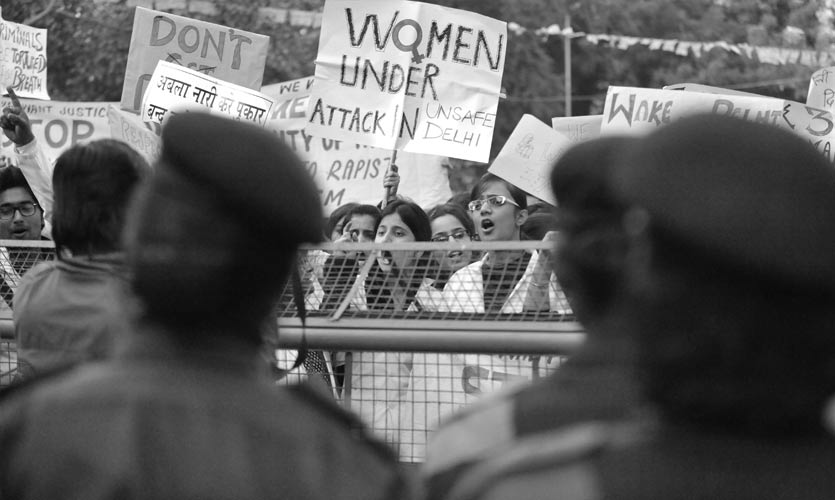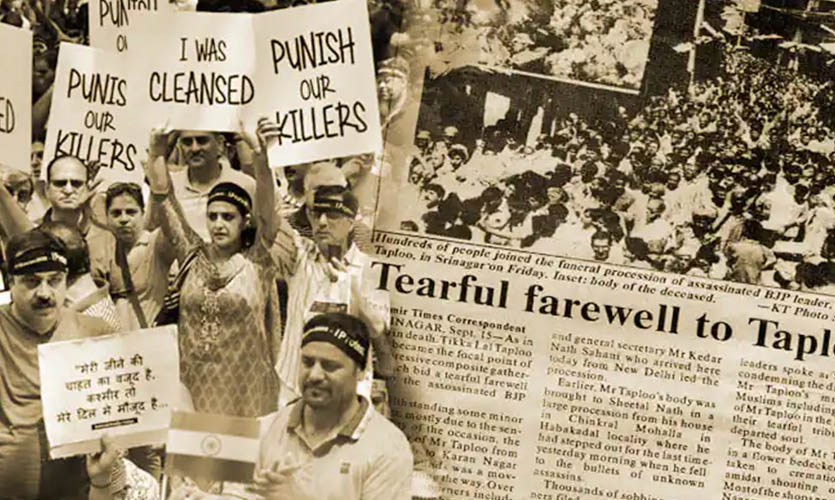Domestic abuse forms the largest share of crimes against women and yet, it is one of the most underreported crimes in India. With the victim(s) constantly sharing space with their abuser(s) during lockdowns, future statistics may not reveal the extent of the real number of atrocities.
The TL; DR
An early April 2020 report by the World Health Organization (WHO), warned of a probable, dramatic increase in violence against women during the COVID-19 emergency. “Stress, the disruption of social and protective networks, and decreased access to services can all exacerbate the risk of violence for women. As distancing measures are put in place and people are encouraged to stay at home, the risk of intimate partner violence is likely to increase,” explained the report. The UN has described the worldwide increase in violence against women and girls, domestic abuse forming the largest measure of cases, as a “shadow pandemic“ alongside COVID-19.
Following the nationwide lockdown in March 2020, India has seen several lockdowns, both regional and state-wide. While these have been imperative to exercise in order to ensure our safety, simply imposing curfews may not have been well thought through. Everyone, regardless of whether they have lost someone or not, has suffered during COVID-19. Analysing it further, however, there are also other aspects to consider. On one hand, there is the obvious economic brunt suffered by people without work-from-home privileges, from tea vendors to cobblers to those in the service industry. On the other hand, the less obvious, unseen group of people negatively impacted by the lockdowns is that of women, especially those financially dependent in our country.
The latest National Crime Records Bureau (NCRB) report states that the number of cases reported for domestic violence under IPC Section 498A – “Cruelty by Husband or his relatives” – forms 19.3% of all crimes against women in India. According to the most recent National Commission for Women (NCW) data available, the number of domestic violence cases increased from 2,960 in 2019 to 5,297 in 2020. The NCW has received a total of 25,886 complaints of crimes against women since April 2020.
Societal Norms & Little Knowledge
India has seen more progress in the last decade than any other country, be it on the global stage or an inclusive workforce. Yet, when it comes to patriarchal norms, our society has its qualms against questioning them.
Snehal Velkar, the programme coordinator and consultant for Akshara, one of the largest NGOs in Mumbai for women and children empowerment, says that there has been at least a 50% increase in the number of cases since March 2020. However, there is gross underreporting and hesitation on the victims’ side. “NGOs receive most calls even though there are laws in place to protect women. We have been working with the Mumbai police on a daily basis. In case of a distress call, the police arrive within 15 minutes to address the issue. But the women have to want to state their desire for intervention,” says Velkar, explaining that no action can be taken without the victim’s explicit request to do so.
“The number of cases reported has been more or less the same, however, because courts are closed, the charge sheets aren’t processed and the number of pending hearings is mounting up,” says police inspector P.D. Solanki, in charge of the Mahila police station for the Ahmedabad rural region.
Velkar further adds that most women don’t know the legal help available to them. Even so, they choose to “save their marriage” because they think they have nowhere else to go, given the financial dependence on their partner in most cases. “Socialisation through patriarchy is an obvious contributor to underreporting and lack of action. While financially independent women often choose to pursue a legal route, most married women seek to solve their problems whilst bearing with violence.” Inspector Solanki also confirms that women who are educated and financially strong are informed of their rights and seek legal proceedings. “Most times we can resolve the disputes within the families internally when it comes to rural areas, but with city-based working women the matter most often goes to court,” says Solanki.
Velkar, the Safe City programme coordinator for Akshara, Mumbai, also points out that Section 498A only addresses domestic violence in the case of married women. This excludes women facing abuse in live-in relationships. “Although there are different laws to protect them, the lack of awareness discourages them from pursuing help,” adds Velkar.
The NCW’s WhatsApp helpline was the most used means of communication for victims. According to the Times of India, campaigns like “suppress corona, not your voice” by the UP police, the Phone-Up programme in Odisha, Kerala State Commission for Women’s tele-counselling facility, and the Maharashtra government’s Akshara Centres, Special Cell for Women and Children, and the #LockdownOnDomesticViolence initiative, were significant steps to prevent and correct crimes against women.
However, the need for such deeds seems less apparent and possibly lost on our policymakers. “We are very unfortunate that there have been no interventions by the centre. Even if state governments and police have their own systems and campaigns in place, a nationwide campaign certainly has better impact and reach,” asserts Velkar.
Protection vs The Right to Privacy
When it comes to women’s safety, politicians have the habit of playing the devil’s advocate, and most men and women, a habit of accepting it.
The centre, in the recent past, has overlooked certain executive discussions taken in the name of protecting women. Uttar Pradesh’s (U.P.’s) ‘love jihad’ ruling and Madhya Pradesh’s (M.P.’s) surveillance plan certainly jump to mind.
‘Love jihad’ is a conspiracy theory alleged by the self-declared champions of Hindutva, which claims that Muslim men entice Hindu women into marriage “with the aim of forcefully converting them to Islam”. The law – the Freedom of Religion (Amendment) Act, 2021 was first passed in U.P., and has gradually made its way to other states including Haryana, Karnataka, M.P. and Uttarakhand, with Gujarat being the latest addition to the list.
While Islam has its own tireless debate with women’s rights, forceful conversions have also been a grim historic reality in India, however, not just by one religious community (for better or worse). Moreover, how is targeting a religion in the name of women’s safety a solution? Even if it were, according to statistics, it is virtually impossible to justify only a single group’s involvement. This law has proved problematic not only for interfaith couples wanting to marry by choice but also for interfaith married couples in retrospect.
M.P. Chief Minister Shivraj Singh Chauhan’s proposal of a tracking system for women in January 2021 is another method which, yet again, targets women’s actions instead of addressing the root problem. It would not be surprising if women who refuse to register themselves with police stations for tracing purposes, will expressly be blamed in case they face harassment or assault. Even if the idea is to track them for safety reasons, it is not a solution as it does not reprimand perpetrators in any way.
It gets worse:
“First of all mothers should keep close watch on daughters, as it was owing to their negligence that all such things are happening with girls… Besides the system, the society, particularly families should also keep an eye on their daughters, particularly with whom they are moving outside and with which boy they are sitting. Don’t give mobile phones to daughters as they talk with boys using cell-phones and elope with them later.”
– Meena Kumari, Women’s Commission member, U.P., on rising rape cases and other crimes against women
“I am a teacher along with being an MLA. Such incidents (like rape) can be stopped only with sanskar (culture), not with shasan (good governance) or talwar (referring to sword or might). All parents should teach their daughters good values.”
– Surendra Singh, BJP MLA, Bairia constituency, U.P., on the alleged gangrape of a Dalit woman in Hathras, in October 2020.
“…showing bare knees, wearing ripped denim and looking like rich kids – these are the values being given now. Where is this coming from, if not at home? What is the fault of teachers or schools? Where am I taking my son, showing his knees and in tattered jeans? Girls are no less, showing their knees.”
– Tirath Singh Rawat, Chief Minister, Uttarakhand, on seeing a woman running an NGO wearing ripped jeans.
“People of Rampur, people of Uttar Pradesh and people of India, it took you 17 years to understand her reality, but I could recognize it in 17 days that she wears a khaki underwear.”
– Azam Khan, Samajwadi Party MP of Lok Sabha from Rampur, on Jaya Prada who was running against him during the 2019 general elections.
“This woman had cried that the entire state had raped her. We can understand if a woman gets sexually abused once. But if it gets repeated, then any woman with self-esteem would either commit suicide or try to prevent such a thing from happening again. But this woman has been saying she was repeatedly abused”.
– Mullappally Ramachandran, (then) President, Karnataka Pradesh Congress Committee, on a woman who had raised her voice against UDF leaders involved in the solar scam, in 2020.
“Ladke ladke hain, galti ho jati hai… Kya rape case mein phasi di jayegi?”
– Mulayam Singh Yadav, Samajwadi Party chief, U.P., opposing capital punishment for rape convicts with his famous “boys will be boys” quip, in 2014.
The government’s lack of proactive effort with regard to women’s safety inside their homes during this pandemic, is bound to cast a shadow over its COVID endeavours. Somehow, the shadow does not seem tall enough for our society to come out of its dated ideas of the “ideal” (re: submissive) woman.
The Horus Eye is a weekly column written by Divya Bhan analysing current affairs and policies. This column does not intend or aim to promote any ideology and does not reflect the official position of The Sparrow.
Also read: The Quad Partnership And Why India Is The Key Player










